Home » Jazz Articles » Big Band Caravan » Stan Kenton-UW Eau Claire / Kirk MacDonald Orchestra / K...
Stan Kenton-UW Eau Claire / Kirk MacDonald Orchestra / Kansas City Jazz Orchestra
 Stan Kenton Orchestra/UW-Eau Claire Jazz Ensemble 1
Stan Kenton Orchestra/UW-Eau Claire Jazz Ensemble 1Double Feature, Vol. 3
Tantara Productions
2012
Volume 3 in Tantara's ongoing two-CD series of Double Features, encompassing heretofore unissued music by the

Stan Kenton
piano1911 - 1979
Hank Levy
saxophone, tenor1927 - 2001
Willie Maiden
b.1928Ken Hanna
b.1921Director Robert Baca's UW-Eau Claire band has some large shoes to fill, having supplanted the excellent DePaul University Ensemble (Volume 1) and Nova Jazz Orchestra (Volume 2), and does so admirably, in spite of having had time for only one rehearsal before each of the recording sessions (there were three). Baca's enterprising undergrads show respectable chops and a solid empathy for the music, from Barton's groovy "Swing Machine" through Levy's powerful treatment of Ernest Gold's theme from the movie Exodus. There's one more Hollywood motif, David Raksin's haunting theme from The Bad and the Beautiful, this one arranged by Fritz, as well as one folk song, "Scarborough Fair," arranged by Maiden who composed and arranged the upbeat "Harold's Club or Bust." The trumpet soloist on that one, last name Bartlett, isn't listed among the personnel.
Coccia is represented by a pair of his breezy compositions, "North Wind" and "West Wind," Levy (again) by his own "Stillness Runs Deep," "Tribute," the ardent "Bop City Revisited" and swaying "Terracotta," Hanna by the deep-hued, brooding and ultimately rhythmic "Lunada," which he wrote and arranged. The ensemble welcomes as guest soloists three alumni: pianist Josh Gallagher ("Lunada," "Terracotta," "Exodus") and trumpeters Tom Krochock ("West Wind," "Stillness," "Exodus") and

John Raymond
trumpetb.1985
Turning to the Kenton concerts (Disc 1), they open in grand style at Indiana State University in September '71 with Barton's enchanting arrangement of the standard "Here's That Rainy Day," a tour de force for the trombone section that opens more slowly than usual and builds to a cataclysmic crescendo before the tranquil coda. Three months earlier, at Drury College in Springfield, MO, with Kenton under the weather and replaced at the keyboard by Claude Sifferlen, the orchestra takes advantage of his absence by performing a couple of hard-swinging charts by

Lennie Niehaus
saxophone, alto1929 - 2020

Bill Holman
composer / conductor- 2024

Bill Perkins
guitar1924 - 2003

George Gershwin
composer / conductor1898 - 1937
Ray Starling
b.1933
Billy Strayhorn
piano1915 - 1967
John Von Ohlen
drumsb.1941

Mike Vax
trumpetThe next five numbers were taped during concerts abroad, in February '72 (the Amsterdam Concertgebouw) and February '73 (Colston Hall, Somerset, England). Hank Levy's "Chiapas" and Maiden's arrangement of the theme from the movie Love Story (introduced by Kenton's piano) were gleaned from the Concertgebouw, Levy's dynamic "Samba Siete," Holman's "The Daily Dance" and Kenton's glossy arrangement of

Bobby Troup
piano1918 - 1999

Neal Hefti
trumpet1922 - 2008

Peter Erskine
drumsb.1954
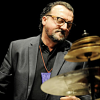
Ramón López
drumsb.1961

Clay Jenkins
trumpetb.1964
Given the time frame and circumstances, the sound quality on Disc 2 is remarkably crisp and clean, transcending in some respects the studio sonority on Disc 1. Save for the Concertgebouw performance, whose over-all sound is no more than decent, the orchestra seems uncommonly energetic and "alive," perhaps because it was performing for audiences whose response fanned the creative fire. Each of the three volumes released to date has much to recommend it, with Volume 1 easing ahead in these precincts by the slimmest of margins thanks to the superb DePaul University ensemble. But the Nova orchestra (Volume 2) makes it a close call, as does UW-Eau Claire, while the Kenton orchestra is typically persuasive throughout.
 Kirk MacDonald Jazz Orchestra
Kirk MacDonald Jazz OrchestraDeep Shadows
Addo Records
2012
Presumably, there is no law in Canada requiring that a big-band leader's last name begin with "Mc" or "Mac," even though most available evidence would seem to indicate otherwise. First came

Rob McConnell
trombone1935 - 2010

Kirk MacDonald
saxophoneb.1959
Not only did MacDonald write every number (five were arranged by trumpeter

Joe Sullivan
trumpet
Lorne Lofsky
guitarb.1954

PJ Perry
saxophoneb.1941

Pat La Barbera
saxophoneb.1944

Barry Romberg
drumsb.1959
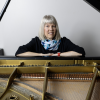
Nancy Walker
pianoMacDonald, who is above all a serious musician, waited until the proper moment to put his orchestra to the test, an examination it passes with flying colors, thanks in no small measure to the wealth of experience and talent spread among the various sidemen (and woman). While Deep Shadows eschews much of the sound and fury often associated with big bands, it succeeds on its own terms, presenting music that is both cerebral and charming. And while MacDonald's name is on the marquee, the album is in every respect a team effort, with everyone in the lineup contributing sizably to the collective enterprise. Deep Shadows is a pleasure to hear and easy to recommend.
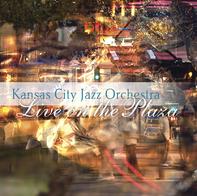 Kansas City Jazz Orchestra
Kansas City Jazz OrchestraLive on the Plaza
KCJO Records
2012
Live on the Plaza is comprised of thirteen numbers performed by the Kansas City Jazz Orchestra during seven concerts over a four-year period from 2003-06. If it is meant to represent the "best" of the KCJO, it succeeds on almost every level. The ensemble is in superior form throughout, as are its splendid guest artists—singer

Ernie Andrews
vocals1927 - 2022

Deborah Brown
vocals
Byron Stripling
trumpetb.1961

Houston Person
saxophone, tenorb.1934

Harold Jones
drumsb.1940
Stripling, especially, brings the house down with dazzling pyrotechnics on the trad favorite "Tiger Rag"—whose conviviality and enthusiasm fairly burst through the speakers—as does the KCJO's trumpet section on a fiery rendition of

Don Menza
saxophoneb.1936

Frank Foster
saxophone1928 - 2011

Bill Holman
composer / conductor- 2024
Billy Byers
tromboneb.1927

Hoagy Carmichael
piano1899 - 1981

Juan Tizol
trombone1900 - 1984

Stan Kenton
piano1911 - 1979
While music director
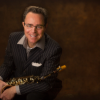
Jim Mair
saxophoneTommy Morgan
harmonica
Charles Williams
keyboardsb.1955
The reason for the word "almost" in our introductory remarks is the sound, which, while fairly good, especially for concert performances taped originally for archival purposes, not for a recording, is some distance removed from studio quality. In other words, there is a resonant "live-in-concert" ambiance whose presence is easily adjusted to and should in no way lessen the average listener's pleasure. In the end, any deficiency in that area is readily outweighed by the caliber of the music, which is exemplary from start to finish. An admirable anthology that is earnestly recommended.
 The Tommy Vig Orchestra 2012
The Tommy Vig Orchestra 2012Welcome to Hungary!
Klasszikus Jazz Records
2012
Let's affirm the positives upfront:

Tommy Vig
vibraphoneb.1938

David Murray
saxophone, tenorb.1955
During the instrumental passages, Vig makes use of a couple of Hungarian instruments, the cimbalon (sort of like a Persian sitar that sounds like a full-throated piano) and tarogato (which resembles a clarinet). The former is played by Rosza Farkas, the latter by Balasz Certa, each of whom is apparently a celebrated virtuoso. Farkas solos on Vig's tribute to Johnny Green, "Buddy and Solita," while Certa plays the melody on several selections. Vig keeps his solos to a minimum, deferring instead to Murray who, while technically solid, has a vexatious tendency to screech and growl, which apparently are indispensable weapons in his improvisational arsenal. For those who aren't concerned about that, he has much of interest to impart.
Vig's charts are variable, to say the least, with moments of candor and elegance offset by others that are, shall we say, less than engaging. One of the most pleasing works from end to end is "Rise and Shine," Vig's earnest bow to Hungary's master of light opera, Sigmund Romberg (born Romberg Zsigmond) who gave us "Lover Come Back to Me" and "Softly, as in a Morning Sunrise" among other memorable tunes. Another is the lively "Vig Corn," based on a folk song played in taverns and bars for many years by Hungarian Gypsy groups. It sounds at times like the old

Glenn Miller
trombone1904 - 1944
Even though Vig's music may not be pleasing to everyone's taste, especially those who grew up with

Count Basie
piano1904 - 1984

Woody Herman
band / ensemble / orchestra1913 - 1987

Buddy Rich
drums1917 - 1987
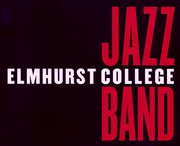 Elmhurst College Jazz Band
Elmhurst College Jazz BandBlue Comedy
Self Published
2012
Is it wishful thinking, or are college jazz ensembles in general playing better than ever? Case in point: the Elmhurst College Jazz Band. Big Band Caravan has reviewed three earlier CDs by director Doug Beach's intrepid undergrads and never heard them sound nearly as precocious and polished as they do on Blue Comedy, which showcases the 2011 edition of the ensemble. And the music they are deciphering is by no means simple, encompassing as it does protean charts by " data-original-title="" title="">Patrick Williams,

Jim McNeely
composer / conductorb.1949

Billy May
composer / conductor1916 - 2004

Slide Hampton
trombone1932 - 2021

Dennis Mackrel
drumsb.1962
The Elmhurst lads (there are no lassies save for singer Vanessa Norman, unless unisex-named tenor Shelley Bishop is female) are tight and well-rehearsed from the outset and swing robustly whenever the occasion demands, as on Mackrel's lickety-split arrangement of

Lester Young
saxophone1909 - 1959

Michael Gibbs
tromboneb.1937
The ensemble opens with Williams' rhythmic "Aurora" (solos by trombonist Richie Palys, baritone Tom Zimney, tenor Ben Thompson), "Jump Start" (Joe Re, piano; David Kaiser, trumpet; Bishop, teno) and Tomaro's melodious "Persevere" (Austin O'Brien, soprano sax; Chris Parsons, guitar; Matt Kellen, drums) before Norman enters the picture on "Easy to Love" and "Swanee." Palys and Zimner are out front on "Lester Leaps In," Thompson and trombonist Nate Mihalic on "Blue Comedy," Palys, Kaiser, Bishop and Kellen on "Go East," Kaiser (flugel) on Slater's pensive "Places."
Kellen does a marvelous job navigating the rhythm section, but that is to be expected, as he has an excellent teacher in
Bob Rummage
drumsTracks and Personnel
Double Feature, Vol. 3
Tracks: CD1: Here's That Rainy Day; A Foggy Day; Yesterdays; Between the Devil and the Deep Blue Sea; Rhapsody in Blue; Take the "A" Train; Chiapas; Theme from Love Story; Samba Siete; Girl Talk; The Daily Dance; Pegasus; Inner Crisis; September Song. CD2: The Swing Machine; The Bad and the Beautiful; North Wind; West Wind; Stillness Runs Deep; Tribute; Harold's Club or Bust; Lunada; Bop City Revisited; Terracotta; Scarborough Fair; Exodus.
Personnel: CD1: Track 1: Stan Kenton: leader, piano; Mike Vax: trumpet; Jay Saunders: trumpet; Dennis Noday: trumpet; Ray Brown: trumpet; Joe Marcinkiewicz: trumpet; Quin Davis: alto sax, flute; Richard Torres: tenor sax, flute; Kim Frizell: tenor sax, flute; Willie Maiden: baritone sax; Chuck Carter: baritone, soprano sax, flute; Dick Shearer: trombone; Mike Jamieson: trombone; Fred Carter: trombone; Mike Wallace: bass trombone; Phil Herring: bass trombone, tuba; Harvie Swartz: bass; John Von Ohlen: drums; Ramon Lopez: Latin percussion. Tracks 2-6: Gary Pack: trumpet; Paul Adamson: trumpet, for Saunders and Brown; Graham Ellis: bass trombone, tuba, for Herring; Claude Sifferlin: piano, for Kenton; Gary Todd: bass, for Swartz. Tracks 7, 8: Saunders: trumpet; Brown: trumpet, for Pack, Adamson; Kenton: piano, for Sifferlin; John Worster: bass, for Todd. Tracks 9-11: Frank Minear: trumpet; Bob Winkler: trumpet, flugelhorn; Mike Snustead: trumpet, for Saunders, Brown, Vax; Harvey Coonin: trombone; Lloyd Spoon: trombone, for Jamieson, Carter; Peter Erskine: drums, for Von Ohlen. Tracks 12-14: Jay Sollenberger: trumpet; Steve Campos: trumpet; Clay Jenkins: trumpet, flugelhorn; Chuck Schmidt: trumpet; Bob Doll: trumpet; Dick Shearer: trombone; Lloyd Spoon: trombone; Denny Brunk: trombone; Allan Morrissey: bass trombone; A.G. Robeson: bass trombone, tuba; Michael Bard: alto, soprano sax, flute; Roy Reynolds: tenor sax, flute; Gary Clinton: tenor sax, flute; Alan Yankee: baritone sax, flute; Greg Metcalf: baritone sax, flute; Stan Kenton: piano; John Worster: bass; Gary Hobbs: drums; Ramon Lopez: Latin percussion. CD2: Tracks 1-4, 6, 7, 9, 11: Chris Bresette: trumpet; Stuart Wallace: trumpet; Kurt Shipe: trumpet; Joe Niemann: trumpet; Eric Schultz: alto sax; Brian Handeland: alto, baritone sax, flute; Tyler Anderson: tenor sax; Jerod Kaszynski: tenor sax; Joe Tierney: baritone sax; Nicole Brellentin: trombone; Matt Heil: trombone; Chris Caine: trombone; David Behm: bass trombone; Will Horn: bass trombone; Brandon Covelli: piano; Ben Acton: guitar; Andy Detra: bass; Mike Malone: drums, percussion. Tracks 5, 8, 10, 12: Keith Hillson: trombone; Erik Olson: trombone, for Brellentin and Caine; Justin Kevan: tenor sax, for Kaszynski; Josh Gallagher: piano, for Covelli. Additional players—Josh Fuchs: trumpet; Graham Pollack: trumpet; Paul Stodolka: trumpet; Elizabeth Tomlinson: trumpet; Dr. Phillip Ostrander: trombone; Rob Margolis: tuba; Kurtis Polshinski: tuba; Dr. Gerry Young: tuba; Aaron Hedenstrom: alto sax; Justin Kevan: alto sax. Alumni guest soloists: Josh Gallagher: piano (8, 10, 12); Tom Krochock: trumpet (4, 5 12); John Raymond: trumpet (3).
Deep Shadows
Tracks: New Piece; Goodbye Glenn; Greenwich Time; Calendula; Eleven; New Beginnings; Starlight; Deep Shadows.
Personnel: Kirk MacDonald: leader, composer, tenor sax; Joe Sullivan: trumpet, flugelhorn, conductor; Rob Smith: trumpet, flugelhorn; Kevin Turcotte: trumpet, flugelhorn; Brian O'Kane: trumpet, flugelhorn; Alex Kundakcioglu: trumpet, flugelhorn; P.J. Perry: alto sax; Mark Promane: alto, soprano sax; Pat LaBarbera: tenor sax; Dave Neill: baritone sax; Al Kay: trombone; Terry Promane: trombone; Kelsley Grant: trombone; Gordon Myers: bass trombone; Lorne Lofsky: guitar; Nancy Walker: piano; Kieran Overs: bass; Barry Romberg: drums.
Live on the Plaza
Tracks: Stompin' at the Savoy; All of Me; Stardust; You Are So Beautiful; Tiger Rag; Purple Gazelle; It Don't Mean a Thing; A Sunday Kind of Love; My Favorite Things; Shiny Stockings; Dizzyland; Caravan; Kenton Kollage.
Personnel (collective): Jim Mair: music director; Bob Harvey: trumpet; Stan Kessler: trumpet; Steve Molloy: trumpet; Jay Sollenberger: trumpet; Fred Mulholland: trumpet; Dave Aaberg: trumpet; Doug Talley, Kerry Strayer, Bob Long, David Chael, Ron Hathorn, Greg Briggs, Hal Melia, Dan Thomas, Gerald Dunn, Todd Wilkinson: reeds; Jeff Hamer: trombone; Paul McKee: trombone; Stephanie Cox: trombone; Arch Martin: trombone; Karita Carter: trombone; Earlie Braggs: trombone; Lee Hill Kavanaugh: bass trombone; Charles Williams: piano; Rod Fleeman: guitar; Danny Embrey: guitar; Theodore Wilson: bass; Gerald Spaits: bass; Tom Morgan: drums; Tim Cambron: drums. Special appearances by Ernie Andrews: vocals; Byron Stripling: trumpet; Houston Person: tenor sax; Deborah Brown: vocals; Harold Jones: drums.
Welcome to Hungary!
Tracks: Sahara; Buddy and Solita; Now Is the Time in Hungary!; Rise and Shine; In Memory of Dizzy; In Memory of Monk; Only You; Vig Corn. Bonus tracks—I Told You; Only You; Me Shall; Veled Vagyok Meg Gondolatban; Fustbe Ment Terv.
Personnel: Tommy Vig: leader, composer, arranger, drums, vibraphone. Bela Szaloky: trombone, flugelhorn; Akos Tompa: trumpet; Janos Hamori: trumpet; Ferenc Schreck: trombone; Peter Kovacs: tuba; Balazs Nagy, Arpad Dennert: reeds; Balazs Cserta: tarogato; Roszas Farkas: cimbalon. Special guest artist—David Murray: tenor saxophone. Other personnel unlisted.
Blue Comedy
Tracks: Aurora; Jump Start; Persevere; Easy to Love; Swanee; Places; Lester Leaps In; Blue Comedy; Go East, Young Man; Lady Be Good.
Personnel: Doug Beach: director; Tom Klein: trumpet; David Kaiser: trumpet; Adam Nicholson: trumpet; Andrew Ecklund: trumpet; Austin O'Brien, Sam Simpson, Shelley Bishop, Ben Thompson, Tom Zimney: reeds; Richie Palys: trombone; Nate Michalic: trombone; Kevin Kerr: trombone; Timm Migus: trombone; Chris Parsons: guitar; Joe Re: piano; Sean Carolan: bass; Matt Kellen: drums; Vanessa Norman: vocals.
Tags
Comments
PREVIOUS / NEXT
Support All About Jazz
 All About Jazz has been a pillar of jazz since 1995, championing it as an art form and, more importantly, supporting the musicians who make it. Our enduring commitment has made "AAJ" one of the most culturally important websites of its kind, read by hundreds of thousands of fans, musicians and industry figures every month.
All About Jazz has been a pillar of jazz since 1995, championing it as an art form and, more importantly, supporting the musicians who make it. Our enduring commitment has made "AAJ" one of the most culturally important websites of its kind, read by hundreds of thousands of fans, musicians and industry figures every month.


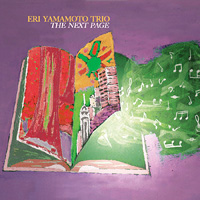


 Buy Now
Buy Now



















